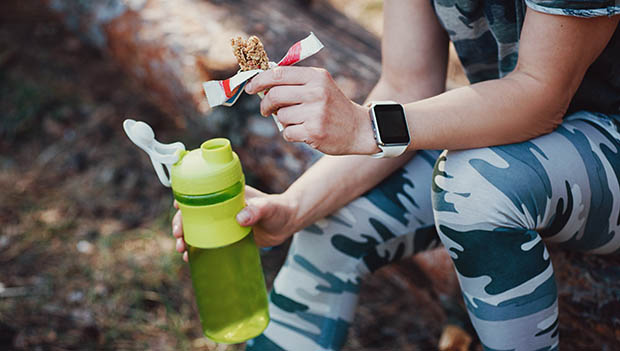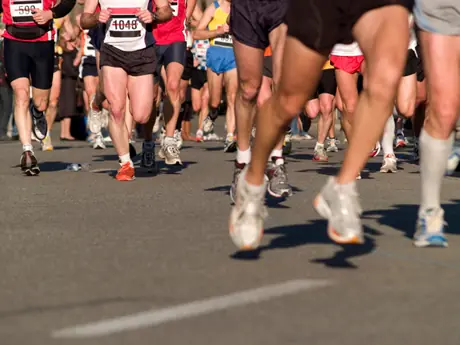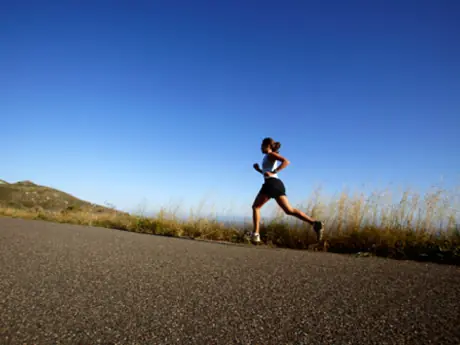
How many times have you gone out for a run and felt like your legs were made of concrete, or worse? Surprisingly, they might not feel so bad about something that you did as something that you didn't do. Treat your legs well between runs to gain more enjoyment from your workouts, increase performance, and speed up recovery time.
1. Fuel
Drinking a few cups of coffee right before heading out on your early morning run probably isn't the best idea. If you eat a large meal before a run, wait at least three hours before you head out. Almost nothing you eat immediately before a run will digest enough to give you energy during your run. If you do have to eat, choose something your system can easily absorb, such as a banana, a few spoonfuls of peanut butter or honey, or a handful of dried fruit.
2. Hydrate
Drink at least eight ounces of water a half hour before heading out to prevent dehydration. If you're going for longer than a 10K run, you might consider taking a water bottle or planning a route that has a water stop along the way. Staying hydrated will keep your legs from cramping, especially in hot weather.
3. Shake it Out
You may be tempted to do intense stretching to get warmed up but try to just loosen up instead. Ankle rolls, hip rotations, and knee circles are a few gentle exercises you can do to get your body loose and relaxed without straining cold muscles and joints.
4. Start slow
Begin your runs with a very relaxed and easy stride—not too fast. Increase your pace slowly until you're running at your desired level. If you start off too fast, you risk running out of gas early in your run, and you'll feel more soreness in your legs afterward.
5. Monitor your shoes
Track the mileage on your shoes. At about 300 miles, mid-soles can become too compressed to return to their original shape between runs, and your feet and legs will notice. Be sure to replace your shoes regularly.

6. Cool Down
After you finish your miles, do a three- to five-minute cool-down run, then stretch thoroughly. Don't just jump back into your car and head off to your next event, or you could be walking around with tight legs for the rest of the day. Performing a cooldown and stretching period allows the lactic acid (the byproduct created by your muscles) to be flushed out into your bloodstream and eliminated from your body.
7. Soak
Take a hot bath or relax in a hot tub after your workout. Soaking your legs warms your muscles and relaxes them back into their normal shapes. A shower doesn't work as well, unfortunately, but it's still good for your legs if a bath is out of the question.
8. Feet up the wall
Perform "leg drains" by lying on your back with your legs extended vertically and feet propped against a wall for three to four minutes. This drains the blood out of your legs so fresh, clean blood can be pumped back into them when you stand up. You can do leg drains either immediately after stretching or after your bath. Either way, you'll notice a markedly different pair of legs under you when you get up.
9. Fuel again
If you've just done a strenuous workout, one of your next two meals should be a solid protein meal, which helps your muscles rebuild themselves. Add a hearty green salad and fresh vegetables to replenish your system with valuable minerals.
10. More water
Whether or not you're a regular runner, you should be drinking water all day long. Eight to ten glasses of water spread throughout the day will replenish the fluid lost to exercise. Don't drink your water all at once; just keep an even flow going.
Get ACTIVE on the Go


Couch to 5K®
The best way to get new runners off the couch and across the finish line of their first 5K.
Available for iOS | Android







Discuss This Article